Search titles
Displaying results 151 to 160 of 208.
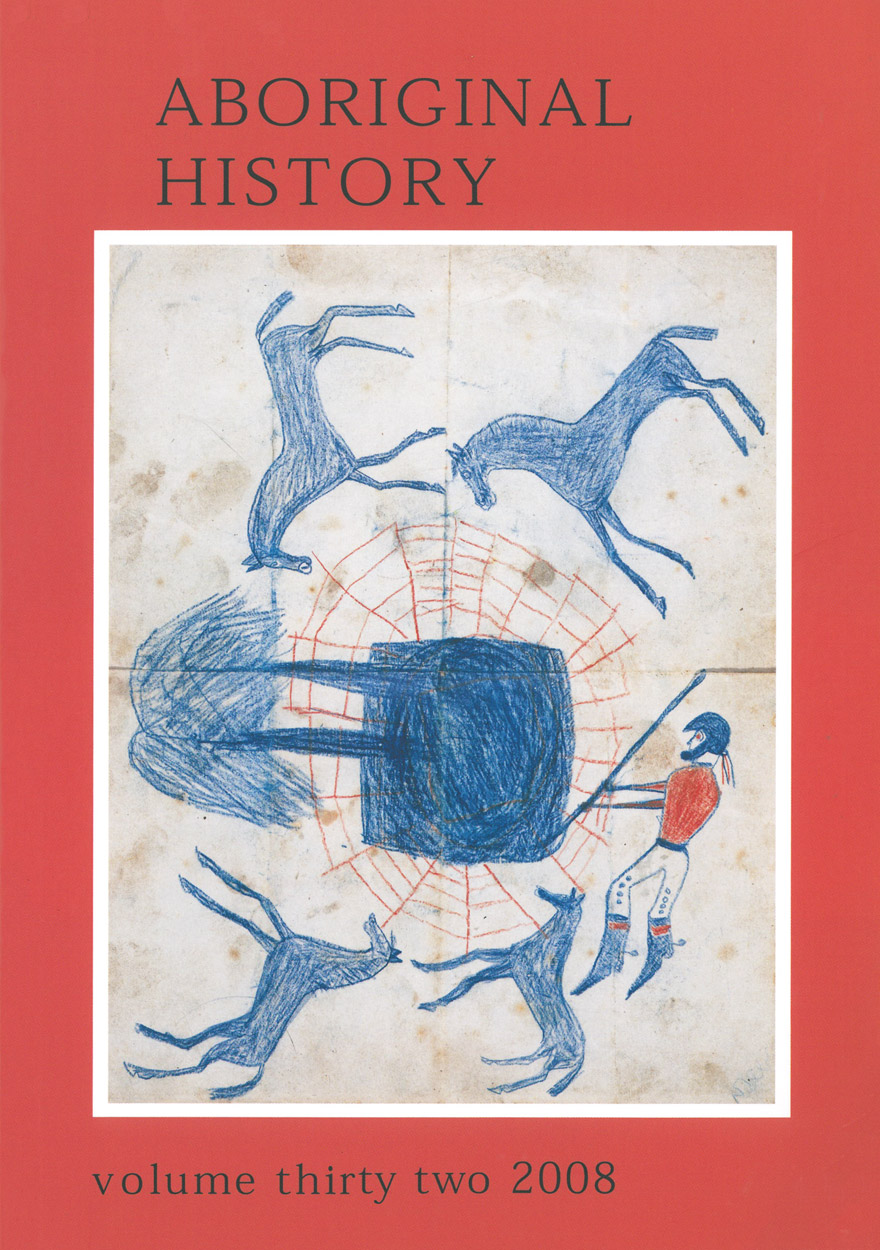
Aboriginal History Journal: Volume 32 »
Publication date: 2008
Since 1977, the journal Aboriginal History has pioneered interdisciplinary historical studies of Australian Aboriginal people’s and Torres Strait Islander’s interactions with non-Indigenous peoples. It has promoted publication of Indigenous oral traditions, biographies, languages, archival and bibliographic guides, previously unpublished manuscript accounts, critiques of current events, and research and reviews in the fields of anthropology, archaeology, sociology, linguistics, demography, law, geography and cultural, political and economic history.
Aboriginal History Inc. is a publishing organisation based in the Australian Centre for Indigenous History, Research School of Social Sciences, The Australian National University, Canberra.
For more information on Aboriginal History Inc. please visit aboriginalhistory.org.au.
Download for free
Not available for purchase
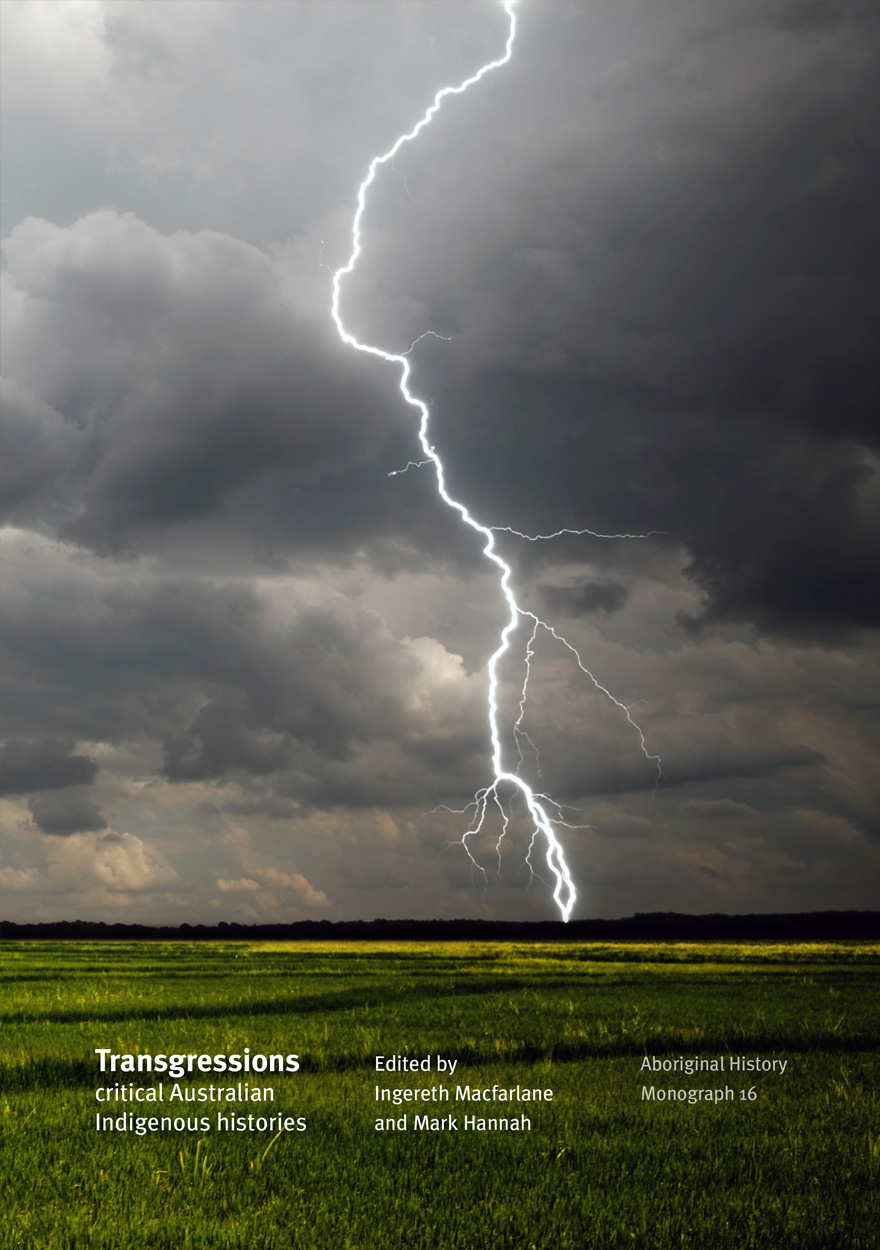
Transgressions »
Critical Australian Indigenous histories
Edited by: Ingereth Macfarlane, Mark Hannah
Publication date: December 2007
This volume brings together an innovative set of readings of complex interactions between Australian Aboriginal people and colonisers. The underlying theme is that of ‘transgression’, and Michel Foucault’s account of the necessary dynamic that exists between transgression and limit. We know what constitutes the limit, not by tracing or re-stating the boundaries, but by crossing over them. By exploring the mechanisms by which limits are set and maintained, unexamined cultural assumptions and dominant ideas are illuminated. We see the expectations and the structures that inform and support them revealed, often as they unravel. Such illuminations and revelations are at the core of the Australian Indigenous histories presented in this collection.
For more information on Aboriginal History Inc. please visit aboriginalhistory.org.au.
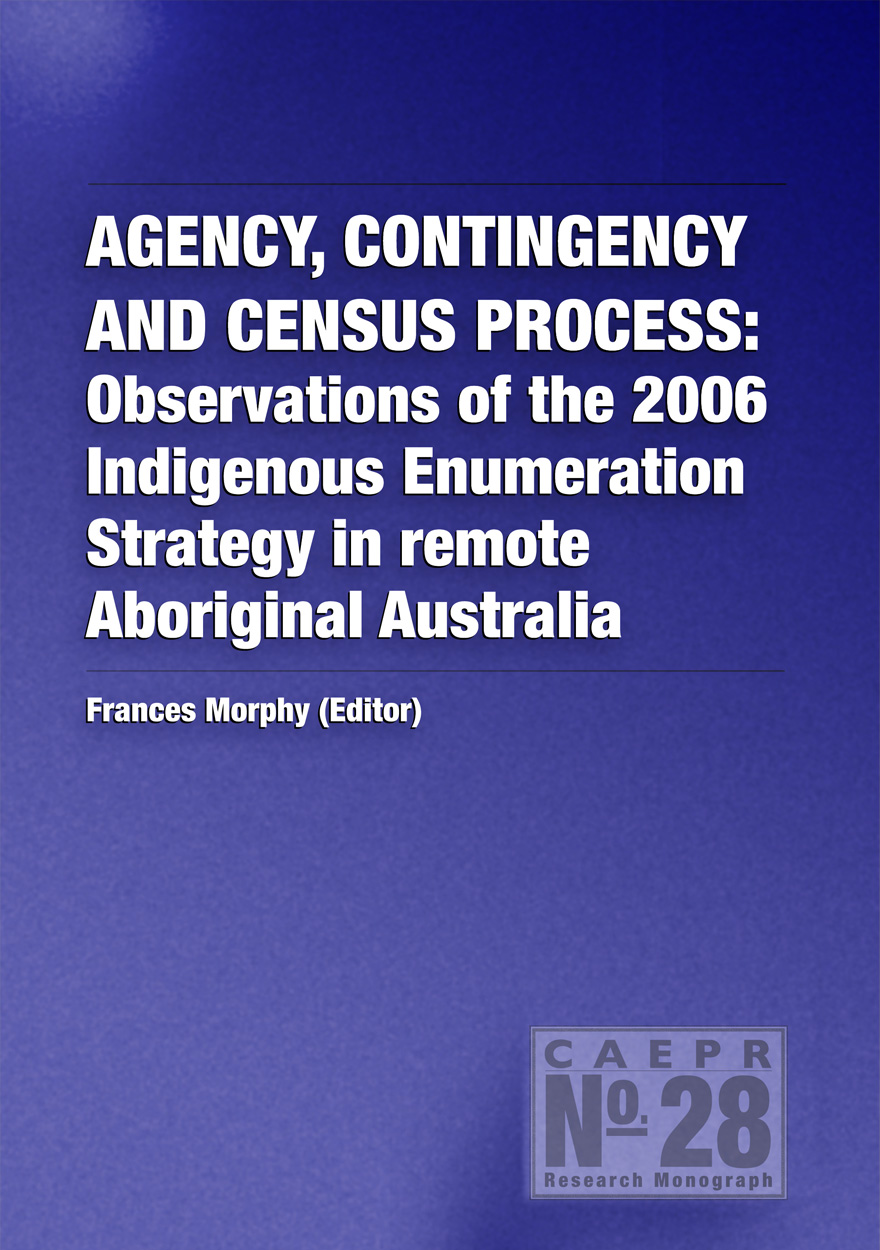
Agency, Contingency and Census Process »
Observations of the 2006 Indigenous Enumeration Strategy in remote Aboriginal Australia
Edited by: Frances Morphy
Publication date: December 2007
The Indigenous Enumeration Strategy (IES) of the Australian National Census of Population and Housing has evolved over the years in response to the perceived ‘difference’ of the Aboriginal and Torres Strait Islander populations. Its defining characteristics are the use of locally recruited, mostly Indigenous collector interviewers, and the administration of a modified collection instrument in discrete Indigenous communities, mostly in remote Australia.
The research reported here is unique. The authors, with the assistance of the Australian Bureau of Statistics, were able to follow the workings of the IES in the 2006 Census from the design of the collection instrument to the training of temporary census field staff at the Northern Territory’s Census Management Unit in Darwin, to the enumeration in four remote locations, through to the processing stage at the Data Processing Centre in Melbourne. This allowed the tracking of data from collection to processing, and an assessment of the effects of information flows on the quality of the data, both as input and output.
This study of the enumeration involved four very different locations: a group of small outstation communities (Arnhem Land), a large Aboriginal township (Wadeye), an ‘open’ town with a majority Aboriginal population (Fitzroy Crossing), and the minority Aboriginal population of a major regional centre (Alice Springs). A comparison between these contexts reveals differences that reflect the diversity of remote Aboriginal Australia, but also commonalities that exert a powerful influence on the effectiveness of the IES, in particular very high levels of short-term mobility. The selection of sites also allowed a comparison between the enumeration process in the Northern Territory, where a time-extended rolling count was explicitly planned for, and Western Australia, where a modified form of the standard count had been envisaged.
The findings suggest that the IES has reached a point in its development where the injection of ever-increasing resources into essentially the same generic set and structure of activities may be producing diminishing returns. There is a need for a new kind of engagement between the Australian Bureau of Statistics and local government and Indigenous community-sector organisations in remote Australia. The agency and local knowledge of Indigenous people could be harnessed more effectively through an ongoing relationship with such organisations, to better address the complex contingencies confronting the census process in remote Indigenous Australia.

The Social Effects of Native Title »
Recognition, Translation, Coexistence
Edited by: Benjamin R. Smith, Frances Morphy
Publication date: October 2007
The papers in this collection reflect on the various social effects of native title. In particular, the authors consider the ways in which the implementation of the Native Title Act 1993 (Cwlth), and the native title process for which this Act legislates, allow for the recognition and translation of Aboriginal law and custom, and facilitate particular kinds of coexistence between Aboriginal title holders and other Australians. In so doing, the authors seek to extend the debate on native title beyond questions of practice and towards an improved understanding of the effects of native title on the social lives of Indigenous Australians and on Australian society more generally.
These attempts to grapple with the effects of native title have, in part, been impelled by Indigenous people’s complaints about the Act and the native title process. Since the Act was passed, many Indigenous Australians have become increasingly unhappy with both the strength and forms of recognition afforded to traditional law and custom under the Act, as well as with the socially disruptive effects of the native title process. In particular, as several of the papers in this collection demonstrate, there is widespread discomfort with the transformative effects of recognition within the native title process, effects which can then affect other aspects of Indigenous lives.

Culture in Translation »
The anthropological legacy of R. H. Mathews
Edited by: Martin Thomas
Publication date: September 2007
R. H. Mathews (1841–1918) was an Australian-born surveyor and self-taught anthropologist. From 1893 until his death in 1918, he made it his mission to record all ‘new and interesting facts’ about Aboriginal Australia. Despite falling foul with some of the most powerful figures in British and Australian anthropology, Mathews published some 2200 pages of anthropological reportage in English, French and German. His legacy is an outstanding record of Aboriginal culture in the Federation period.
This first edited collection of Mathews’ writings represents the many facets of his research, ranging from kinship study to documentation of myth. It include eleven articles translated from French or German that until now have been unavailable in English. Introduced and edited by Martin Thomas, who compellingly analyses the anthropologist, his milieu, and the intrigues that were so costly to his reputation, Culture in Translation is essential reading on the history of cross-cultural research.
The translations from the French are by Mathilde de Hauteclocque and from the German by Christine Winter.
For more information on Aboriginal History Inc. please visit aboriginalhistory.org.au.
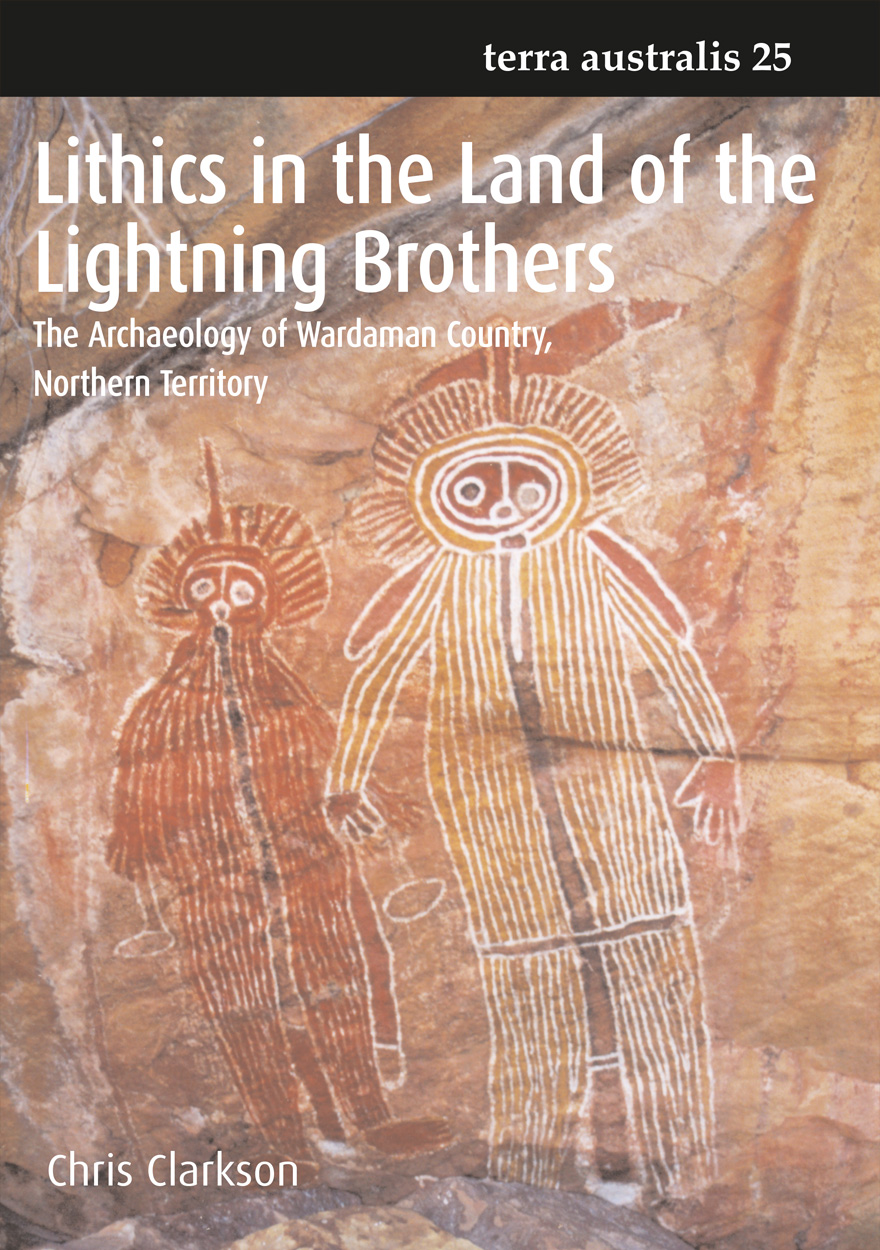
Lithics in the Land of the Lightning Brothers »
The Archaeology of Wardaman Country, Northern Territory
Authored by: Chris Clarkson
Publication date: September 2007
Lithics in the Land of the Lightning Brothers skilfully integrates a wide range of data-raw-material procurement, tool design, reduction and curation, patterns of distribution and association-to reveal the major outlines of Wardaman prehistory. At the same time, the book firmly situates data and methods in broad theoretical context. In its regional scope and thorough technological approach, this book exemplifies the best of recent lithic analysis and hunter-gatherer archaeology.
Any archaeologist who confronts the challenge of classifying retouched stone tools should consult this volume for a clear demonstration of reduction intensity as a source of size and form variation independent of “type.” Yet the demonstration is not merely methodological; Clarkson shows how the measurement of reduction intensity informs analysis of technological diversity and other cultural practices.
In Clarkson’s hands, Wardaman prehistory emerges as a particular record of the human past. Yet the book is also a case study in prolonged cultural response to environmental conditions and the way in which cultures persist and reproduce themselves over long spans of time. The result is an analytical tour de force that will guide hunter-gatherer archaeology in Australia and elsewhere for years to come.
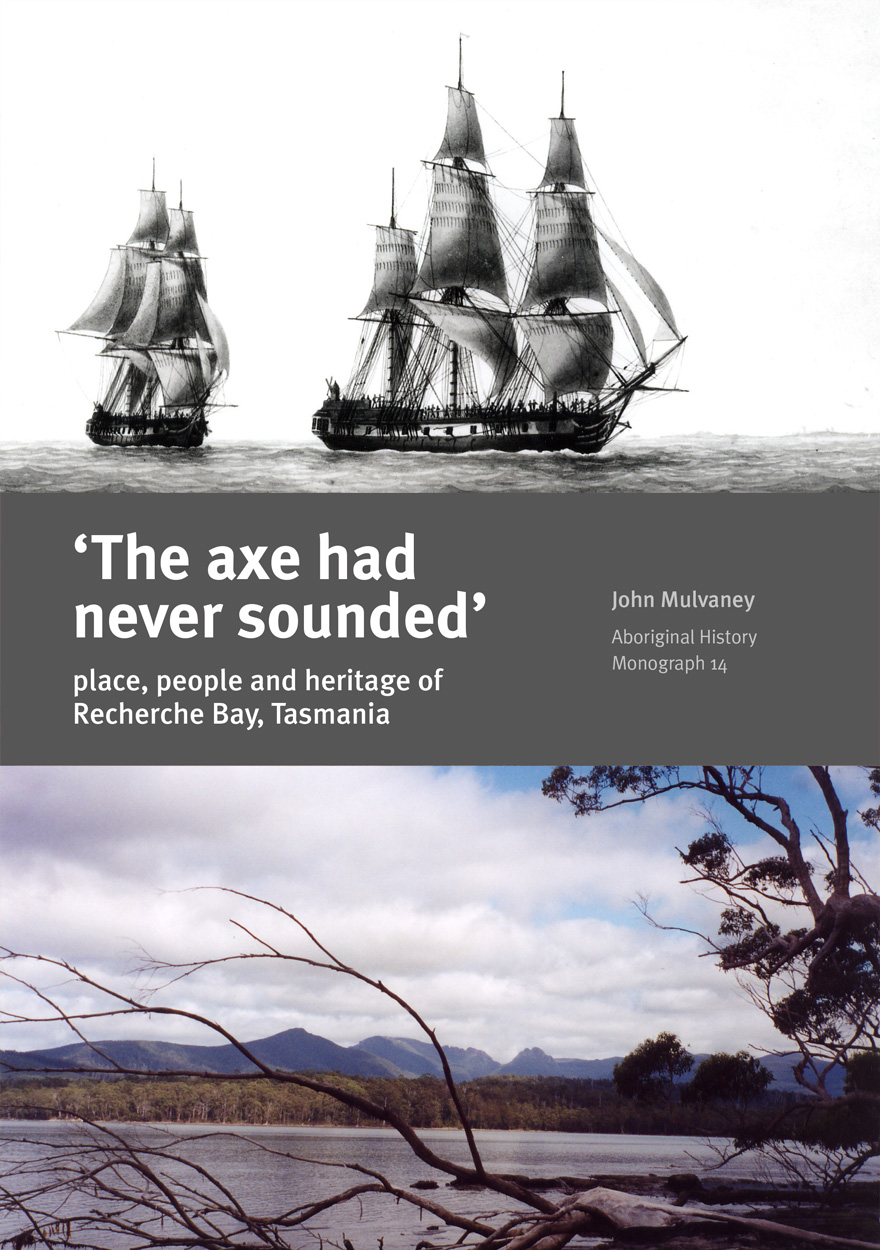
'The Axe Had Never Sounded' »
Place, people and heritage of Recherche Bay, Tasmania
Authored by: John Mulvaney
Publication date: August 2007
‘This book meets well the triple promise of the title – the inter-connections of place, people and heritage. John Mulvaney brings to this work a deep knowledge of the history, ethnography and archaeology of Tasmania. He presents a comprehensive account of the area’s history over the 200 years since French naval expeditions first charted its coastlines. The important records the French officers and scientists left of encounters with Aboriginal groups are discussed in detail, set in the wider ethnographic context and compared with those of later expeditions.
‘The topical issues of understanding the importance of Recherche Bay as a cultural landscape and its protection and future management inform the book. Readers will be challenged to consider the connections between people and place, and how these may constitute significant national heritage.’
Professor Isabel McBryde, AO, FRAI, FAHA, FSA
The Australian National University
For more information on Aboriginal History Inc. please visit aboriginalhistory.org.au.

Customary Land Tenure & Registration in Australia and Papua New Guinea »
Anthropological Perspectives
Edited by: James Weiner, Katie Glaskin
Publication date: June 2007
The main theme of this volume is a discussion of the ways in which legal mechanisms, such as the Land Groups Incorporation Act (1974) in PNG, and the Native Title Act (1993) in Australia, do not, as they purport, serve merely to identify and register already-existing customary indigenous landowning groups in these countries. Because the legislation is an integral part of the way in which indigenous people are defined and managed in relation to the State, it serves to elicit particular responses in landowner organisation and self-identification on the part of indigenous people. These pieces of legislation actively contour the progressive evolution of landowner social, territorial and political organisation at all levels in these nation states. The contributors to this volume provide in-depth anthropological case studies of social structural and cultural transformations engendered by the confrontation between states, developers and indigenous communities over rights to customarily owned land.

A Passion for Policy »
Essays in Public Sector Reform
Edited by: John Wanna
Publication date: June 2007
This collection of papers is concerned with issues of policy development, practice, implementation and performance. It represents a range of views about diverse subjects by individuals who are, for the most part, in the public eye and who have the capacity to influence the shape and the reality of public policy. Each has a story to tell, with insights that can only be drawn by those working at the ‘sharp end’ of policy.
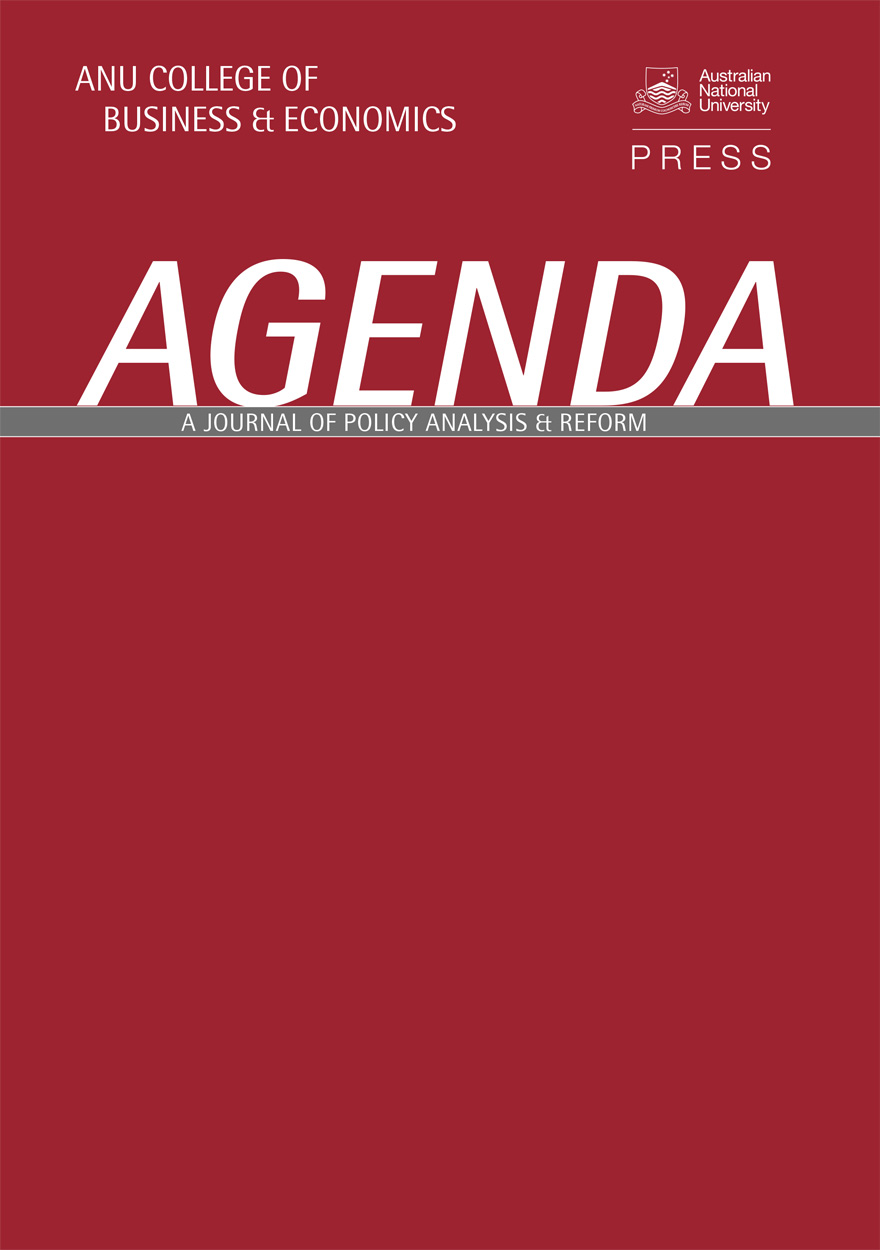
Agenda - A Journal of Policy Analysis and Reform: Volume 8, Number 3, 2001 »
Publication date: April 2007
Agenda is a refereed, ECONLIT-indexed and RePEc-listed journal of the College of Business and Economics, The Australian National University. Launched in 1994, Agenda provides a forum for debate on public policy, mainly (but not exclusively) in Australia and New Zealand. It deals largely with economic issues but gives space to social and legal policy and also to the moral and philosophical foundations and implications of policy.
Subscribe to the Agenda Alerting service if you wish to be advised on forthcoming or new issues.
Download for free
Not available for purchase



